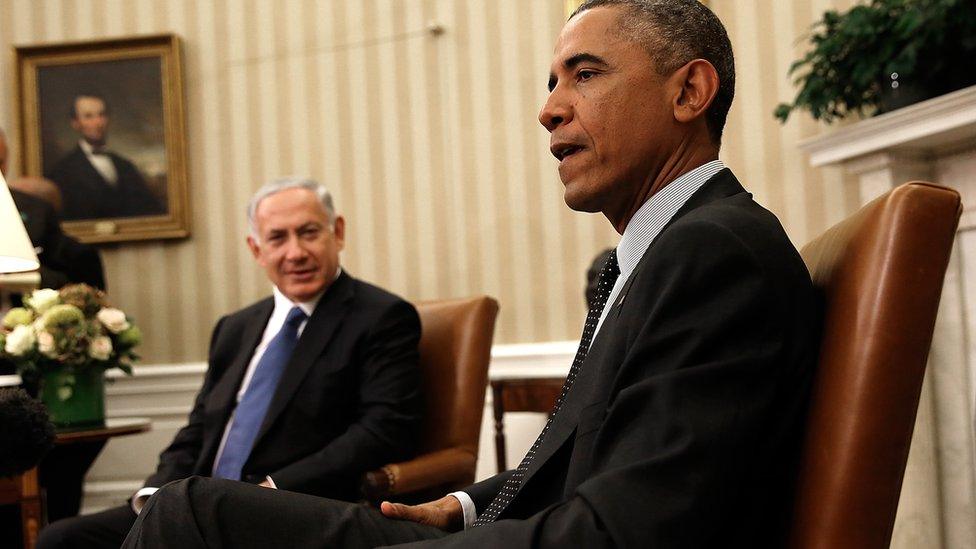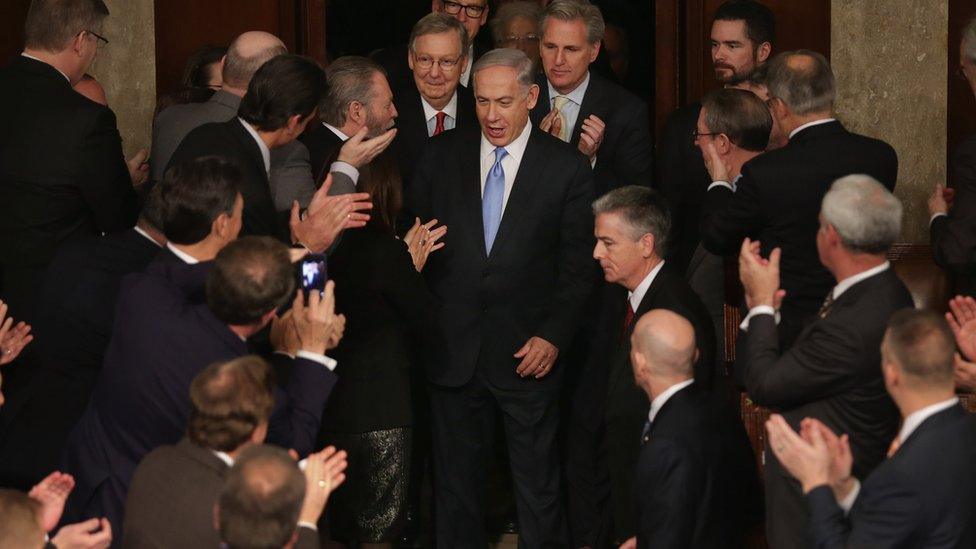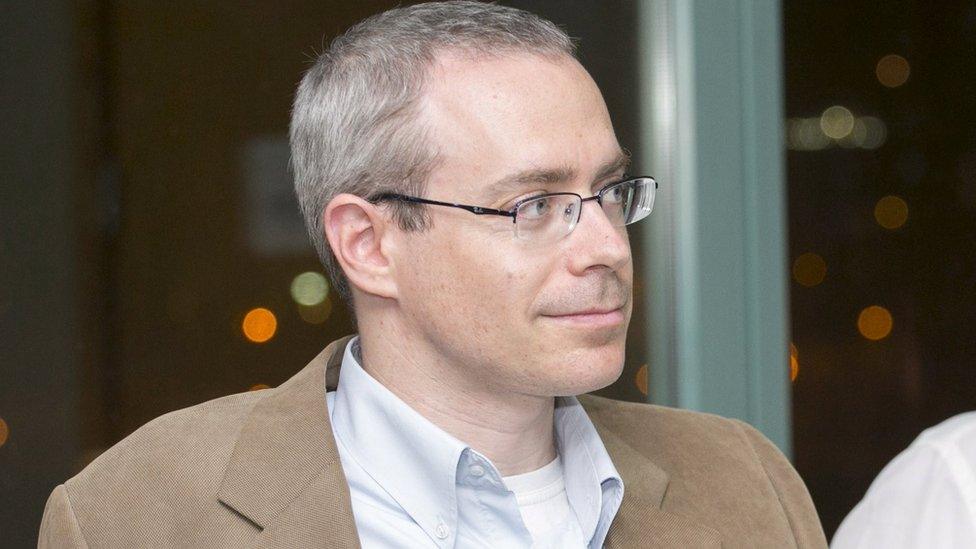Benjamin Netanyahu comes to Washington - again
- Published

Israel's Prime Minister Benjamin Netanyahu makes his first trip back to Washington after a high-profile - and unsuccessful - bid to scupper the Iran deal. What should we expect?
Before we get to what is really going on, let me just give you the official line from the White House on Benjamin Netanyahu's latest visit to Washington.
"The president looks forward to discussing with the prime minister regional security issues, including implementation of the Joint Comprehensive Plan of Action to peacefully and verifiably prevent Iran from acquiring a nuclear weapon, and countering Tehran's destabilising activities," the White House says, adding the president "looks forward" to discussing the "the need for the genuine advancement of a two-state solution".
Aaah. If only life were that simple - two powerful men sitting down to work on some of the major issues of the day in a constructive and fraternal manner. But this is Bibi and Obama. And they have history - most of it bad.
For a start this will be Benjamin Netanyahu's first visit to Washington since his speech to Congress urging Americans to reject a deal with Iran that the US was still in the process of negotiating. An invitation that had been extended - and accepted - without the knowledge of the White House.

Bibi was a popular man in Congress in March
I wrote about it at the time as the chutzpah of a head of a foreign government coming to the US Congress to appeal directly to the American people to reject what their democratically elected president was negotiating. The fury levels in the West Wing were off the scale.
It was a mighty high-risk gamble by the Israeli prime minister. And it failed. It was a hammer blow, too, for one of Washington's most powerful lobbying organisations, including pro-Israel group Aipac (American Israeli Public Affairs Committee).
Yes, there was strong opposition to the Iran deal and Mr Netanyahu tapped into concerns that still exist today, but ultimately the White House marshalled enough support to stop the deal being blocked by Congress.
The whole process had another effect. It nudged the subject of Israel, a country that has historically always enjoyed strong support from both Democrats and Republicans, into yet another fractious partisan issue. I say nudged, because Israel still enjoys strong backing on both sides of the aisle - but it has made Bibi a much more love/loathe figure than previous Israeli prime-ministers.
It is perfectly possible for world leaders to have a disagreement on policy and to differ respectfully. But Mr Netanyahu has just appointed Dr Ran Baratz as the head Israel's National Public Diplomacy Directorate.
Dr Baratz has some colourful views. He described President Obama as a modern anti-Semite and Secretary of State John Kerry as having the mental capacity of a child. These comments were made on his Facebook page (really not the smartest or most private place to sound off when you are about to get a job in public diplomacy) just after Mr Netanyahu's speech to Congress in March.

Ran Baratz was appointed to a top communications job in the Israeli government
Mr Kerry called Mr Netanyahu to demand clarifications about the appointment. The prime minister announced that Dr Baratz's statements about various public figures were inappropriate, and that he would discuss the matter with Dr Baratz upon his return to Israel.
You would think that views like that might just debar you from holding that office, but no.
And back here in Washington, this dysfunctional relationship between the two governments has given the space for another, more consensus-minded pro-Israel lobby to gain some traction. J Street may not have the muscle or money of Aipac but they are gaining a voice. Now they are issuing a petition - calling Israel's "status quo dangerous and unacceptable" and stating that "government actions which undermine the two-state solution hurt Israel's special relationship with the United States".
You are not going to see language like that from Aipac.
There is, though, some real business to be done on this trip. The Israelis will be looking for a big increase to the annual US military aid budget to Israel - from $3bn to $4bn for 10 years.
Israel wants this as a "military compensation package" over the Iran deal, so that Israel can maintain its military hardware advantage over other Middle East countries. Mr Obama will want to know about the prime minister's visit to Moscow with key military advisers and the conversations they had with President Putin over Syria.
There will be smiles, and handshakes and warm words. They may even say nice things about each other - but look out for seriously gritted teeth.
- Published6 November 2015

- Published20 October 2015
- Published19 June 2015